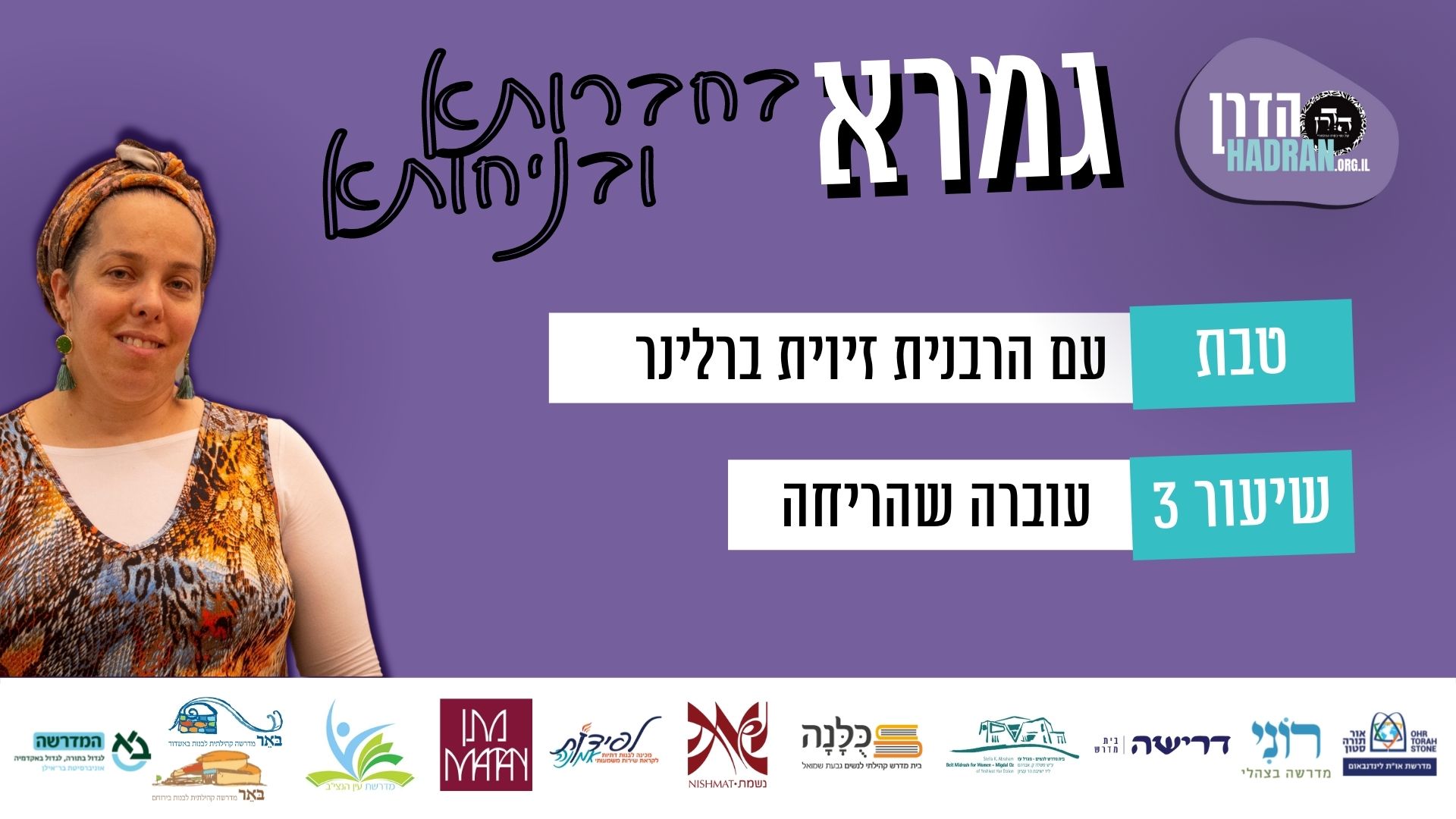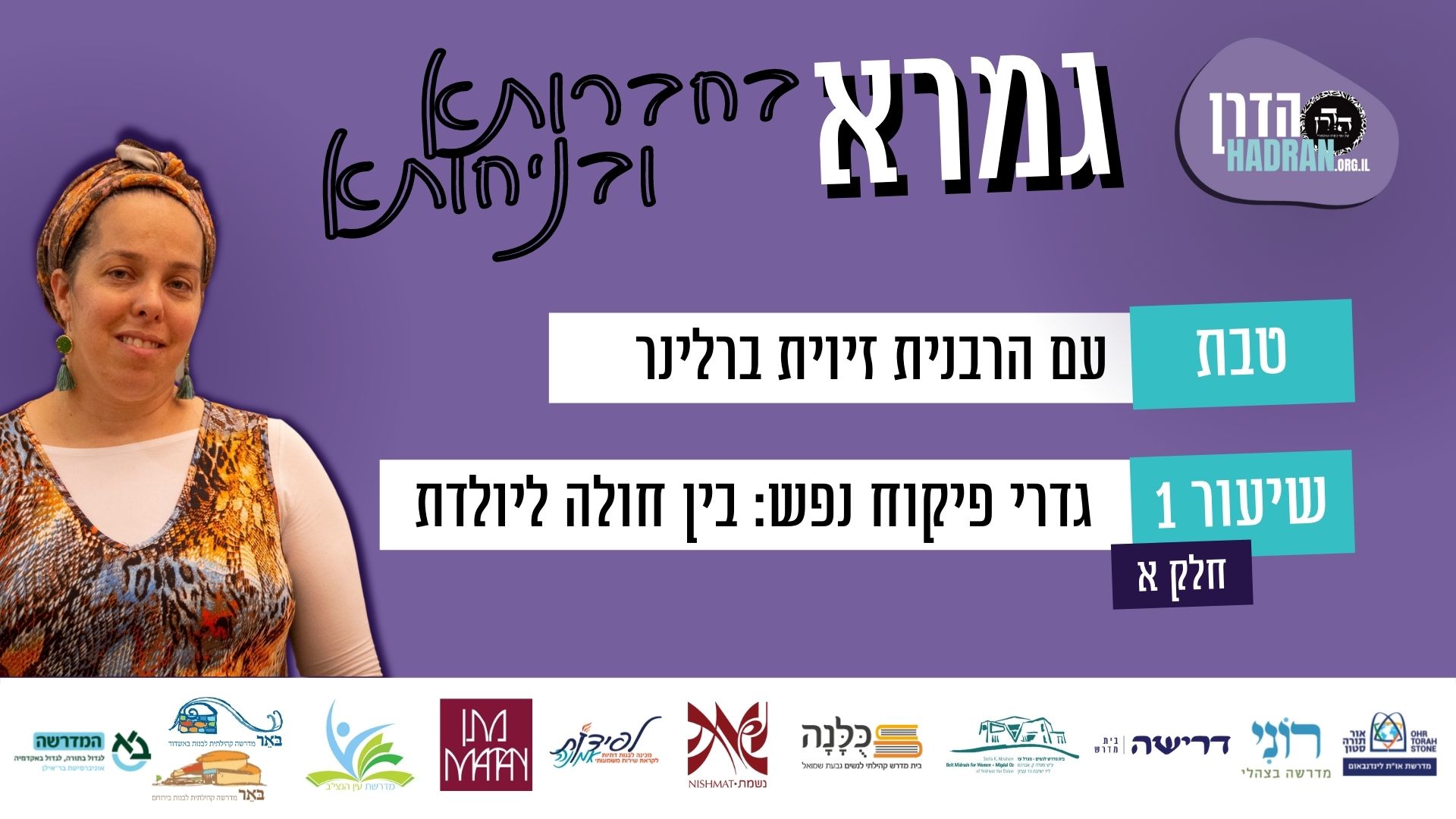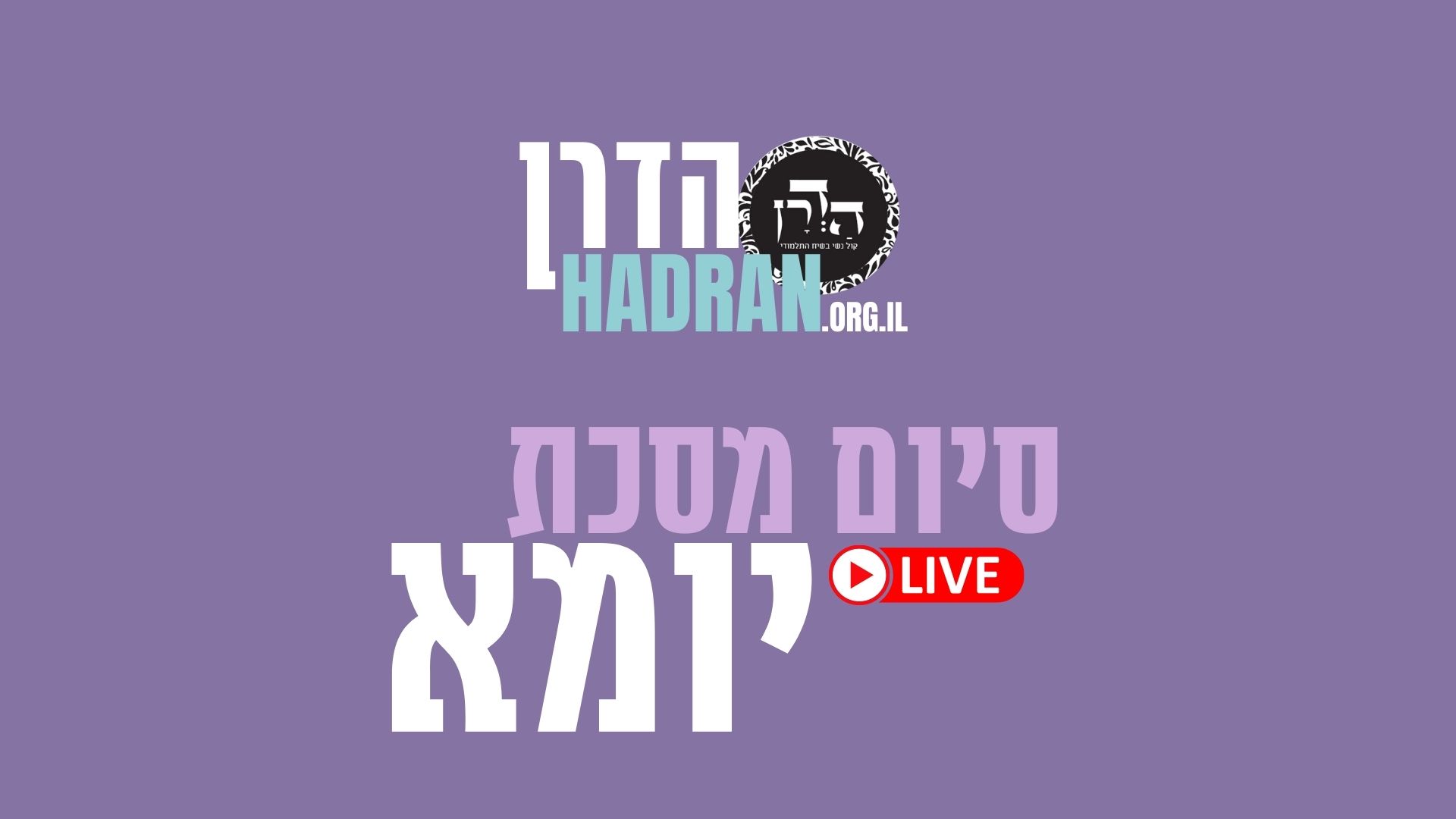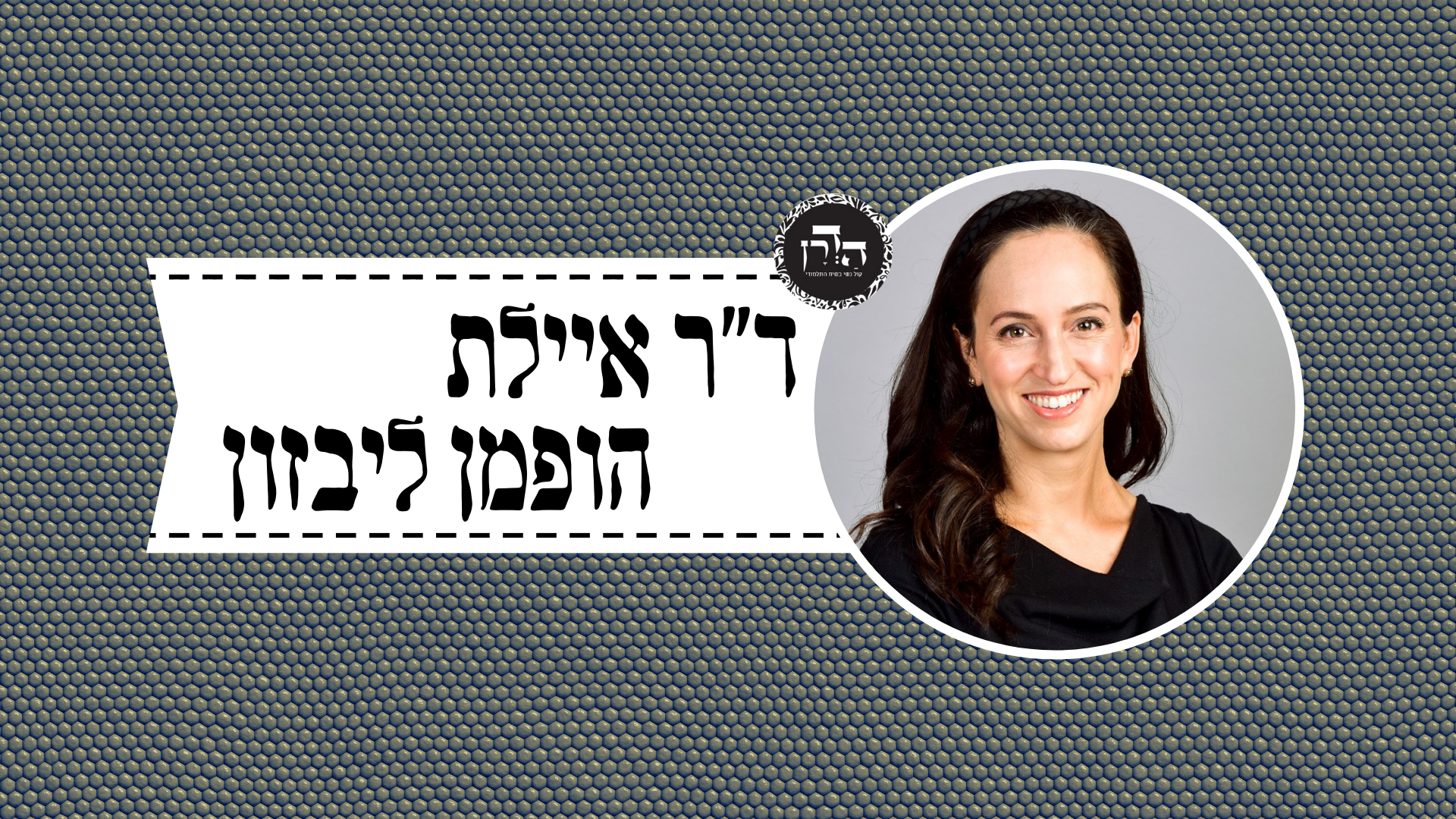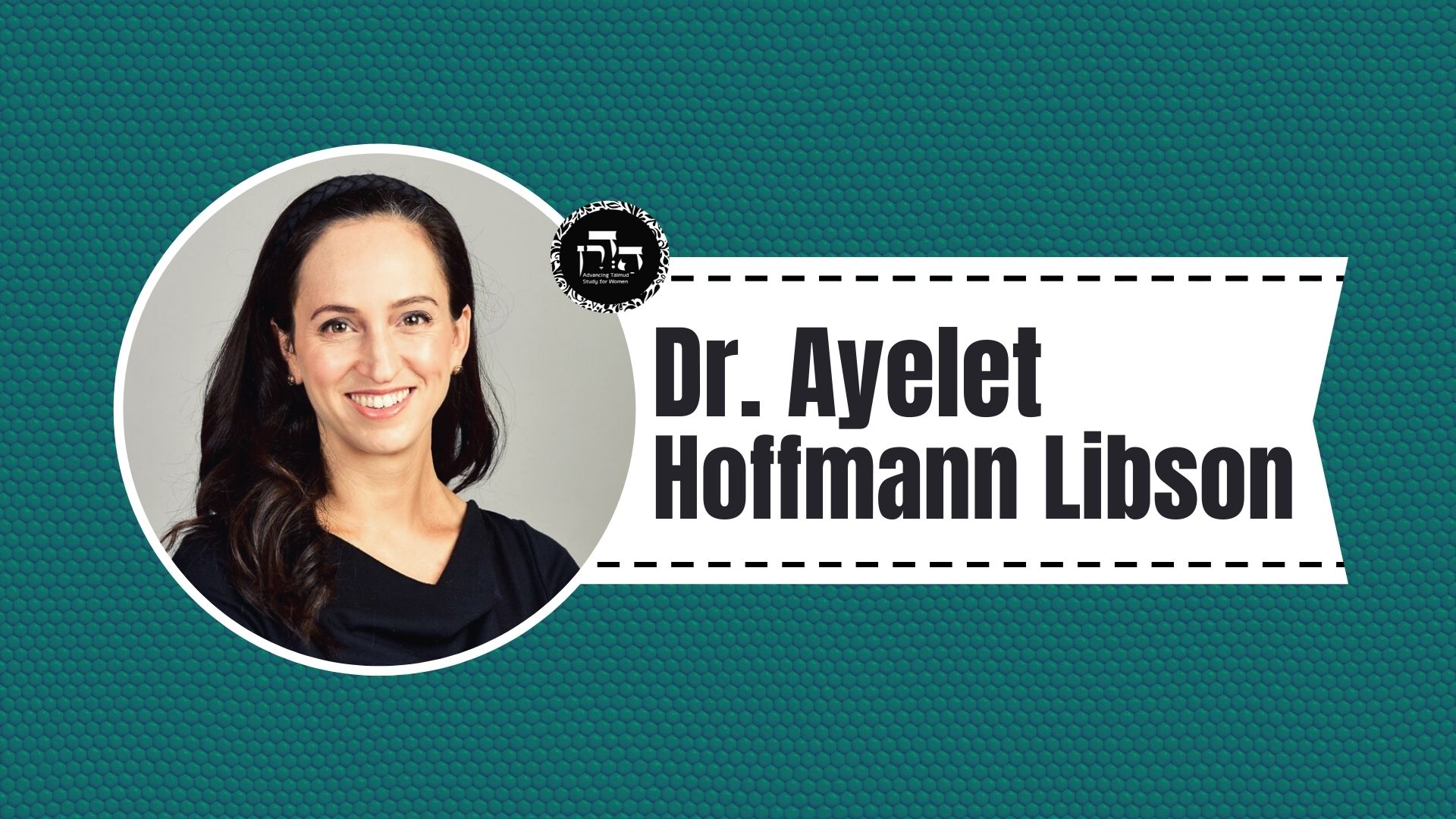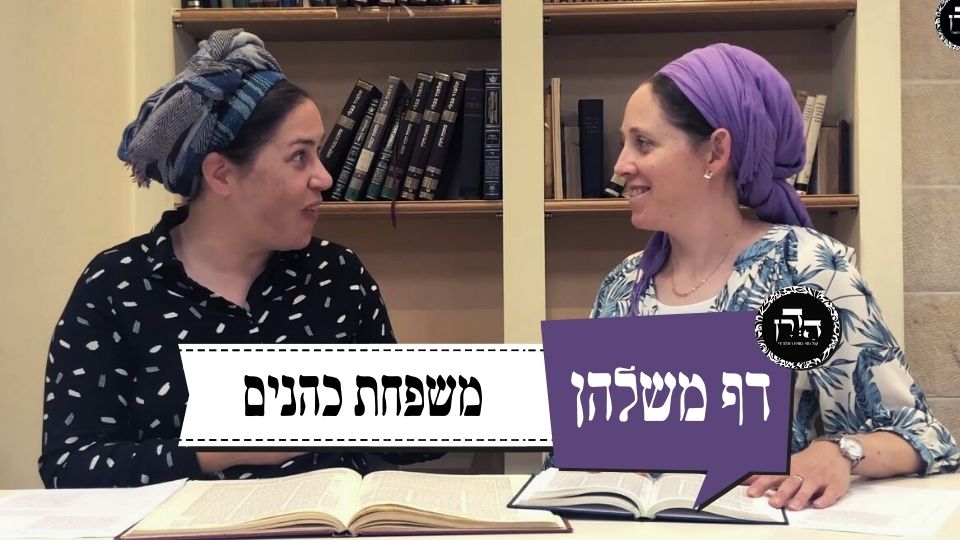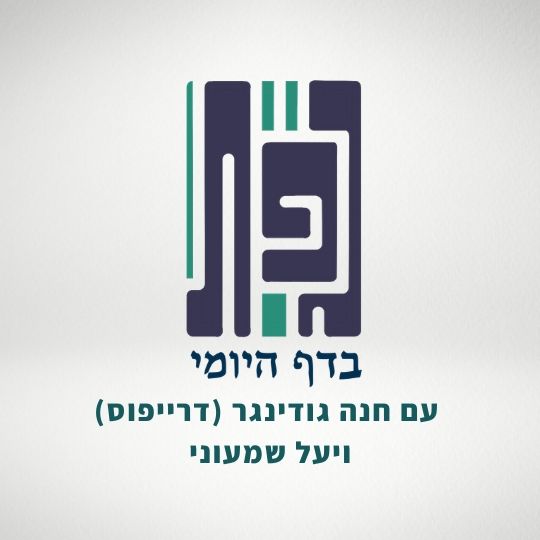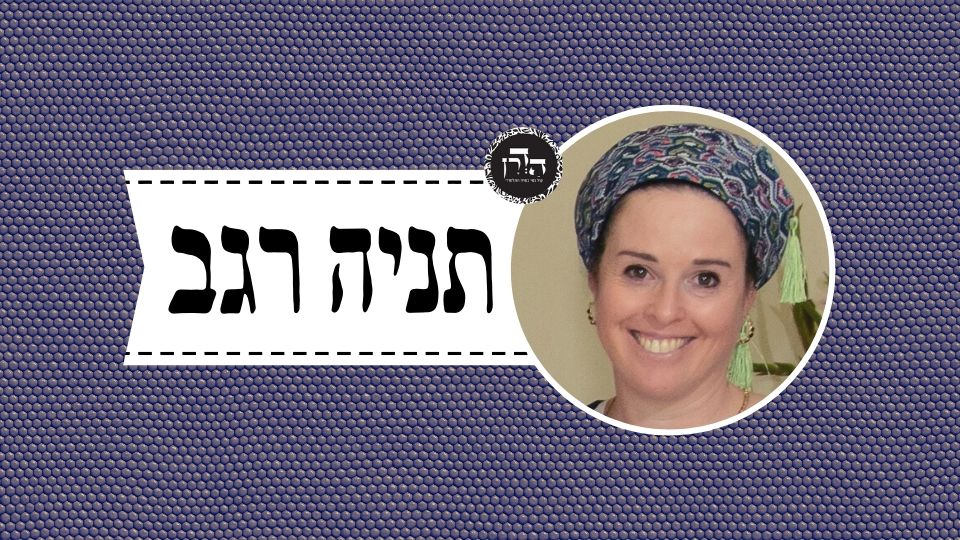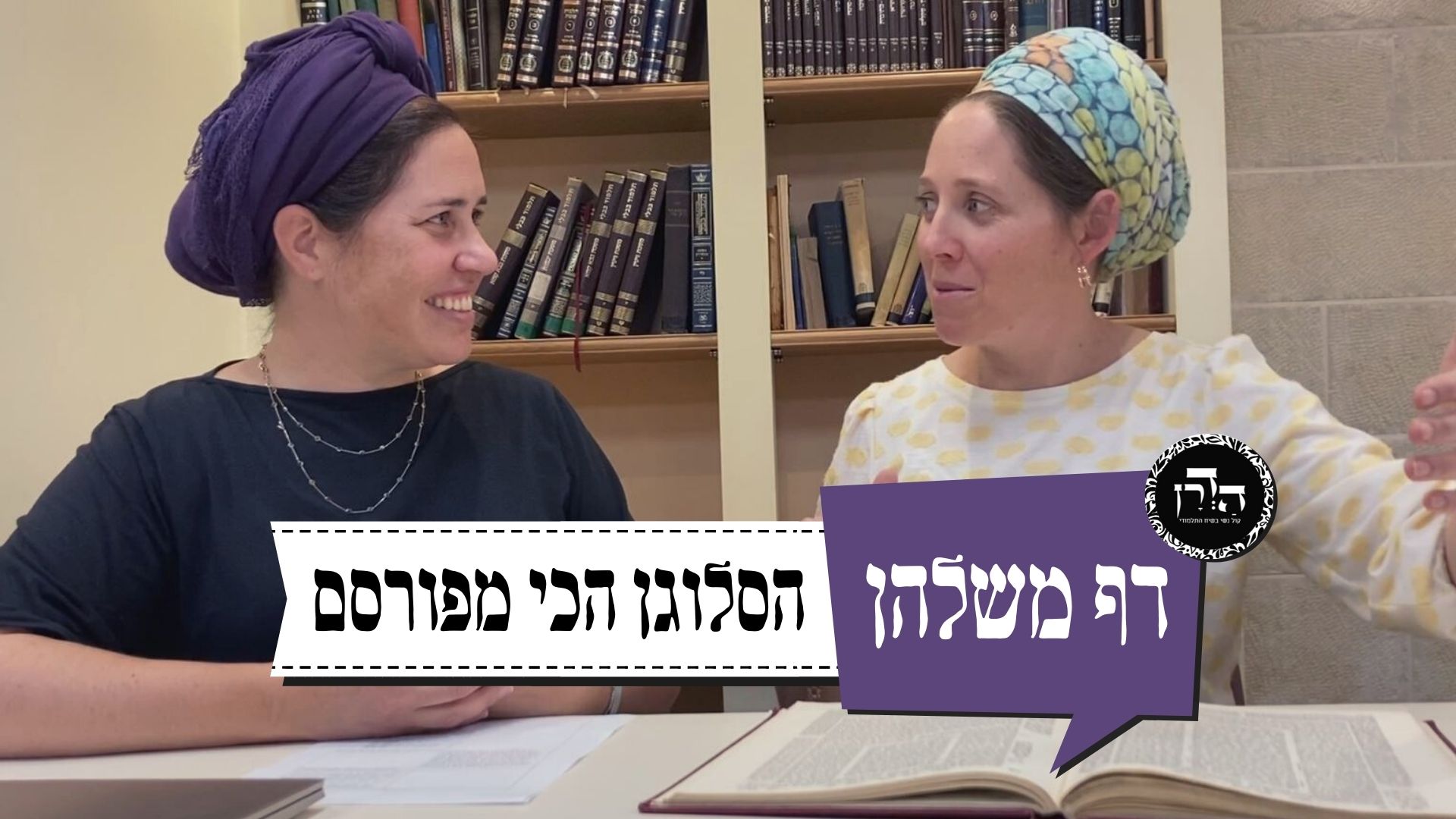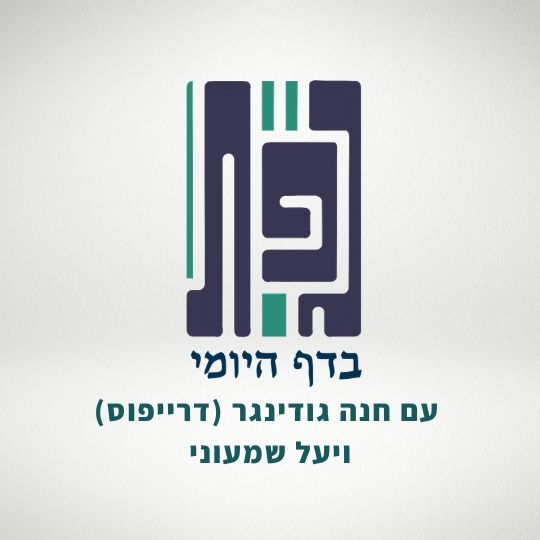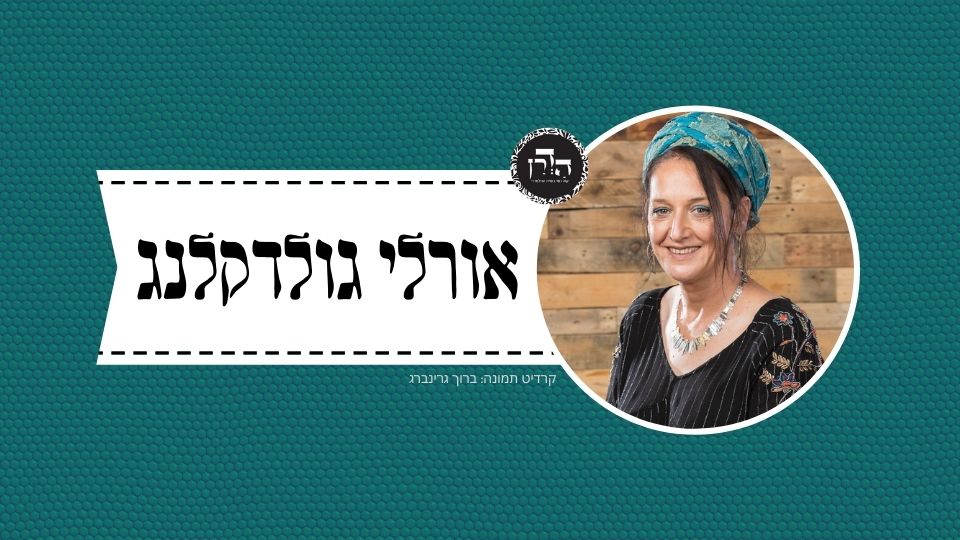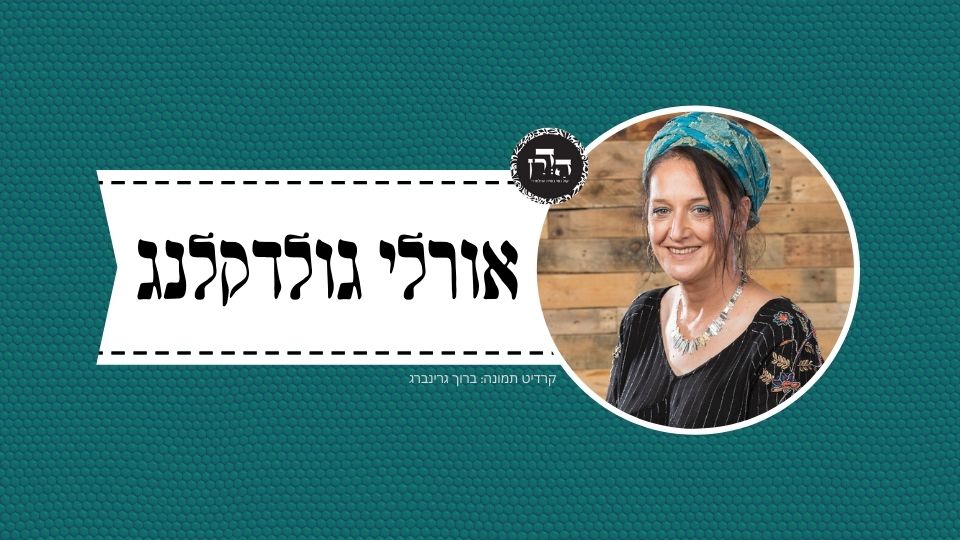יומא ג
פָּזֵ״ר קֶשֶׁ״ב.
Peh, zayin, reish, kuf, shin, beit, an acronym for: Lottery [payis], as a new lottery is performed on that day to determine which priests will sacrifice the offerings that day, and the order established on Sukkot does not continue; the blessing of time [zeman]: Who has given us life, sustained us, and brought us to this time, is recited just as it is recited at the start of each Festival; Festival [regel], as it is considered a Festival in and of itself and there is no mitzva to reside in the sukka (see Tosafot); offering [korban], as the number of offerings sacrificed on the Eighth Day is not a continuation of the number offered on Sukkot but is part of a new calculation; song [shira], as the Psalms recited by the Levites as the offerings were sacrificed on the Eighth Day are not a continuation of those recited on Sukkot; blessing [berakha], as the addition to the third blessing of Grace after Meals and in the Amida prayer (see Tosafot) is phrased differently than the addition recited on Sukkot.
אֲבָל לְעִנְיַן תַּשְׁלוּמִין, תַּשְׁלוּמִין דְּרִאשׁוֹן הוּא, דְּהָא תְּנַן: מִי שֶׁלֹּא חָג בְּיוֹם טוֹב הָרִאשׁוֹן שֶׁל חַג — חוֹגֵג וְהוֹלֵךְ כָּל הָרֶגֶל כּוּלּוֹ, וְיוֹם טוֹב הָאַחֲרוֹן שֶׁל חַג.
However, despite all these differences, with regard to compensation for failure to sacrifice the Festival offerings at the earliest opportunity, everyone agrees that it is a day of compensation for obligations not met during the first Festival, as didn’t we learn in the mishna: One who did not celebrate on the first Festival day of Sukkot by sacrificing the Festival offering may celebrate and sacrifice the Festival offering throughout the whole Festival in its entirety, including the last Festival day of the festival of Sukkot. Apparently, the Eighth Day of Assembly is considered the last Festival day of Sukkot and is appended to it with regard to its obligations.
וְאֵימָא עֲצֶרֶת, דִּפְרִישַׁת שִׁבְעָה לְיוֹם אֶחָד הוּא! אָמַר רַבִּי אַבָּא: דָּנִין פַּר אֶחָד וְאַיִל אֶחָד מִפַּר אֶחָד וְאַיִל אֶחָד, לְאַפּוֹקֵי עֲצֶרֶת דִּשְׁנֵי אֵילִים נִינְהוּ.
The Gemara challenges further: And say that the priest should be sequestered before the festival of Shavuot, which is a Festival preceded by weekdays, as there too it is a matter of sequestering of seven days for one day. Rabbi Abba said: There is a distinction between the inauguration and Shavuot, as one derives an instance where the obligatory offering is one bull and one ram, Yom Kippur, from an instance where the obligatory offering is one bull and one ram, the inauguration, to the exclusion of Shavuot, when they are two rams that are offered.
הָנִיחָא לְמַאן דְּאָמַר יוֹם הַכִּפּוּרִים אַיִל אֶחָד הוּא, אֶלָּא לְמַאן דְּאָמַר שְׁנֵי אֵילִים נִינְהוּ, מַאי אִיכָּא לְמֵימַר! דְּתַנְיָא, רַבִּי אוֹמֵר: אַיִל אֶחָד, הוּא הָאָמוּר כָּאן, הוּא הָאָמוּר בְּחוּמַּשׁ הַפְּקוּדִים. רַבִּי אֱלִיעֶזֶר בְּרַבִּי שִׁמְעוֹן אוֹמֵר: שְׁנֵי אֵילִים הֵם, אֶחָד הָאָמוּר כָּאן, וְאֶחָד הָאָמוּר בְּחוּמַּשׁ הַפְּקוּדִים!
The Gemara challenges: This works out well according to the one who said that the obligatory offering on Yom Kippur is one ram; however, according to the one who said that they are two rams that are sacrificed on Yom Kippur, what is there to say? According to that opinion, Yom Kippur is not comparable to the inauguration. As it was taught in a baraita: Rabbi Yehuda HaNasi says: One ram is the one that is mentioned here; as it is written: “With this Aaron will come into the Sanctuary, with a young bull for a sin-offering and a ram for a burnt-offering” (Leviticus 16:3), and it is the same one that is mentioned in the book of Numbers: “And on the tenth day of the seventh month you will have a sacred gathering when you will afflict your souls; you will not do any labor, and you will offer a burnt-offering to the Lord for a sweet aroma: One young bull, one ram…” (Numbers 29:7–8). Rabbi Eliezer, son of Rabbi Shimon, says: They are two rams offered on Yom Kippur, one mentioned here in the book of Leviticus and one mentioned in the book of Numbers.
אֲפִילּוּ תֵּימָא רַבִּי אֱלִיעֶזֶר בְּרַבִּי שִׁמְעוֹן: הָתָם חַד לְחוֹבַת הַיּוֹם, וְחַד לְמוּסָפִין. לְאַפּוֹקֵי עֲצֶרֶת, דְּתַרְוַיְיהוּ חוֹבַת הַיּוֹם נִינְהוּ.
The Gemara rejects this solution: Even if you say that it is in accordance with the opinion of Rabbi Eliezer, son of Rabbi Shimon, and two rams are brought on Yom Kippur, a distinction remains between Yom Kippur and Shavuot. There, with regard to Yom Kippur, one ram, mentioned in the book of Leviticus, is for the obligation of the day, the atonement of Yom Kippur; and one ram, mentioned in the book of Numbers, is for the additional offerings. This is to the exclusion of the halakha with regard to Shavuot, where both rams are obligations of the day. Therefore, there is no basis for deriving the halakha with regard to Shavuot from the inauguration.
וְאֵימָא רֹאשׁ הַשָּׁנָה, דִּפְרִישַׁת שִׁבְעָה לְיוֹם אֶחָד הוּא! אָמַר רַבִּי אֲבָהוּ: דָּנִין פָּר וָאַיִל שֶׁלּוֹ מִפָּר וָאַיִל שֶׁלּוֹ. לְאַפּוֹקֵי עֲצֶרֶת וְרֹאשׁ הַשָּׁנָה, דְּצִיבּוּר נִינְהוּ. הָנִיחָא לְמַאן דְּאָמַר ״קַח לְךָ״ — מִשֶּׁלְּךָ,
The Gemara asks: And say that the requirement derived is to sequester the priest prior to Rosh HaShana, as there, too, it is sequestering of seven days for one day. The days before Rosh HaShana are weekdays, and as in the inauguration, a bull and a ram are sacrificed. Rabbi Abbahu said that this too is rejected: One derives a bull and a ram that the High Priest brings from his own property on Yom Kippur from a bull and a ram that Aaron brought from his own property at the inauguration. This is to the exclusion of Shavuot and Rosh HaShana, when the bull and the ram sacrificed are from community property and not owned by the priest. The Gemara asks: This works out well according to the one who said that every time the Torah utilizes the phrase: Take you, it means from your own property,
״עֲשֵׂה לְךָ״ — מִשֶּׁלְּךָ, אֶלָּא לְמַאן דְּאָמַר מִשֶּׁל צִבּוּר, מַאי אִיכָּא לְמֵימַר?
and similarly, when the Torah states: Make you, it means from your own property. However, according to the one who said that when the Torah states both phrases it means from communal property, what is there to say to distinguish between Yom Kippur and the other days?
דְּתַנְיָא: ״קַח לְךָ״ — מִשֶּׁלְּךָ, וַ״עֲשֵׂה לְךָ״ — מִשֶּׁלְּךָ, ״וְיִקְחוּ אֵלֶיךָ״ — מִשֶּׁל צִבּוּר, דִּבְרֵי רַבִּי יֹאשִׁיָּה. רַבִּי יוֹנָתָן אוֹמֵר: בֵּין ״קַח לְךָ״, בֵּין ״וְיִקְחוּ אֵלֶיךָ״ — מִשֶּׁל צִבּוּר, וּמָה תַּלְמוּד לוֹמַר ״קַח לְךָ״ — כִּבְיָכוֹל מִשֶּׁלְּךָ אֲנִי רוֹצֶה יוֹתֵר מִשֶּׁלָּהֶם.
As it was taught in a baraita that when the Torah states: Take you, it means from your own property, and when it states: Make you, it means from your own property; however, when the Torah states: And they will bring to you, it means from community property. This is the statement of Rabbi Yoshiya. Rabbi Yonatan says that both when the Torah states: Take you, and when the Torah states: And they will bring to you, it means from community property. And for what purpose, then, does the verse state: Take you, which seems to mean from your own property? It should be understood, as it were, that God said to Moses: I desire that it come from your property more than I desire it from theirs. Therefore, the taking was attributed to Moses even though it was actually from community property.
אַבָּא חָנָן אָמַר מִשּׁוּם רַבִּי אֶלְעָזָר, כָּתוּב אֶחָד אוֹמֵר: ״וְעָשִׂיתָ לְּךָ אֲרוֹן עֵץ״, וְכָתוּב אֶחָד אוֹמֵר: ״וְעָשׂוּ אֲרוֹן עֲצֵי שִׁטִּים״, הָא כֵּיצַד? כָּאן בִּזְמַן שֶׁיִּשְׂרָאֵל עוֹשִׂין רְצוֹנוֹ שֶׁל מָקוֹם, כָּאן בִּזְמַן שֶׁאֵין עוֹשִׂין רְצוֹנוֹ שֶׁל מָקוֹם!
Abba Ḥanan said in the name of Rabbi Elazar that one verse says: “And make you an ark of wood” (Deuteronomy 10:1), indicating that it should be from your own property; and one verse says on the same subject: “And they shall make an ark of acacia wood” (Exodus 25:10), meaning from the Jewish people. How can this contradiction be resolved? Here, the verse is referring to a time when the Jewish people perform the will of God and they are credited with building the Ark of the Covenant. There, it is referring to a time when the Jewish people do not perform the will of God, and construction of the Ark is attributed to Moses alone. According to that opinion, there is no difference between the offerings of Yom Kippur and other offerings.
עַד כָּאן לָא פְּלִיגִי אֶלָּא בְּקִיחוֹת דְּעָלְמָא וַעֲשִׂיּוֹת דְּעָלְמָא. קִיחוֹת דְּעָלְמָא — ״קַח לְךָ סַמִּים״. עֲשִׂיּוֹת דְּעָלְמָא — ״עֲשֵׂה לְךָ שְׁתֵּי חֲצוֹצְרוֹת כֶּסֶף״. אֲבָל הָנָךְ פָּרוֹשֵׁי קָא מְפָרֵשׁ דְּמִשֶּׁלְּךָ הוּא. בְּמִלּוּאִים מִכְּדֵי כְּתִיב: ״וְאֶל בְּנֵי יִשְׂרָאֵל תְּדַבֵּר לֵאמֹר קְחוּ שְׂעִיר עִזִּים לְחַטָּאת״. ״וַיֹּאמֶר אֶל אַהֲרֹן קַח לְךָ עֵגֶל בֶּן בָּקָר לְחַטָּאת״ לְמָה לִי? שְׁמַע מִינַּהּ: ״קַח לְךָ״ — מִשֶּׁלְּךָ הוּא.
The Gemara rejects this: They disagree only with regard to instances of taking in general and instances of making in general: Instances of taking in general are as in the verse: “Take you spices” (Exodus 30:34); and instances of making in general are as in the verse: “Make you two silver trumpets” (Numbers 10:2). However, in these cases of inauguration and of Yom Kippur the verses explicitly teach that the offerings must be from your own property. With regard to the inauguration, now, since it is written: “And to the children of Israel you will speak, saying: Take a goat kid for a sin-offering and an unblemished year-old calf and lamb for burnt-offerings” (Leviticus 9:3), with regard to the verse: “And he said to Aaron: Take you a young calf for a sin-offering” (Leviticus 9:2), why do I need this clear difference between the formulation of the command to the Jewish people and the formulation of the command to Aaron? Learn from it that in this context the phrase: Take you, means from your own property.
בְּיוֹם הַכִּפּוּרִים מִכְּדֵי כְּתִיב: ״בְּזֹאת יָבֹא אַהֲרֹן אֶל הַקֹּדֶשׁ בְּפַר בֶּן בָּקָר לְחַטָּאת וְגוֹ׳ … וּמֵאֵת עֲדַת בְּנֵי יִשְׂרָאֵל יִקַּח שְׁנֵי שְׂעִירֵי עִזִּים לְחַטָּאת״. ״וְהִקְרִיב אֶת פַּר הַחַטָּאת אֲשֶׁר לוֹ״ לְמָה לִי? שְׁמַע מִינַּהּ: הַאי ״לוֹ״ — מִשֶּׁלּוֹ הוּא.
And with regard to Yom Kippur, now, since it is written: “With this Aaron will come into the Sanctuary, with a young bull for a sin-offering and a ram for a burnt-offering” (Leviticus 16:3), with regard to the verse: “And from the congregation of the children of Israel he will take two goat kids for a sin-offering and one ram for a burnt-offering and Aaron will offer his young bull as a sin-offering” (Leviticus 16:5–6), why do I need the emphasis that the goats come from the property of the children of Israel? Learn from it that this term: His, written with regard to the calf, means it is from his own property.
רַב אָשֵׁי אָמַר: דָּנִין פַּר לְחַטָּאת וְאַיִל לְעוֹלָה מִפַּר לְחַטָּאת וְאַיִל לְעוֹלָה, לְאַפּוֹקֵי רֹאשׁ הַשָּׁנָה וַעֲצֶרֶת — דְּתַרְוַיְיהוּ עוֹלוֹת נִינְהוּ.
Rav Ashi stated another reason that distinguishes Yom Kippur from Rosh HaShana and Shavuot. One derives the bull for a sin-offering and ram for a burnt-offering written with regard to Yom Kippur from the bull for a sin-offering and ram for a burnt-offering written with regard to the inauguration, to the exclusion of Rosh HaShana and Shavuot, on which both of them, the bull and the ram, are burnt-offerings.
רָבִינָא אָמַר: דָּנִין עֲבוֹדָה בְּכֹהֵן גָּדוֹל מֵעֲבוֹדָה בְּכֹהֵן גָּדוֹל, לְאַפּוֹקֵי כּוּלְּהוּ קוּשְׁיָיתִין — דְּלָאו עֲבוֹדָה בְּכֹהֵן גָּדוֹל נִינְהוּ.
Ravina stated another distinction: One derives a matter that is restricted to the service performed by the High Priest, Yom Kippur, from a matter that is restricted to the service performed by the High Priest, the inauguration, which was performed by Aaron, to the exclusion of all the difficulties raised from the beginning of the discussion, as on the other potential days raised, they are not restricted to service performed by the High Priest; rather, the service on those days may be performed by any priest.
וְאִיכָּא דְּאָמְרִי אָמַר רָבִינָא: דָּנִין עֲבוֹדָה תְּחִלָּה מֵעֲבוֹדָה תְּחִלָּה, לְאַפּוֹקֵי הָנֵי — דְּלָאו תְּחִלָּה נִינְהוּ. מַאי תְּחִלָּה? אִילֵּימָא תְּחִלָּה בְּכֹהֵן גָּדוֹל — הַיְינוּ קַמַּיְיתָא. אֶלָּא, עֲבוֹדָה תְּחִלָּה בַּמָּקוֹם מֵעֲבוֹדָה תְּחִלָּה בַּמָּקוֹם.
And some say that Ravina said: One derives a matter that is an initial service from an initial service, to the exclusion of all these that are not initial services. That statement of Ravina is unclear, and the Gemara asks: What is the meaning of initial service? If we say that initial service means one performed by the High Priest; that is identical to the first version of Ravina’s statement. Rather, it may be understood as follows: One derives the initial service performed in the place, the Holy of Holies, on Yom Kippur, from the initial service performed in the place, the Tabernacle, on the eighth day of the inauguration. Therefore, it is the service of Yom Kippur alone that is derived from the inauguration.
כִּי אֲתָא רַב דִּימִי, אָמַר: רַבִּי יוֹחָנָן מַתְנֵי חֲדָא, [רַבִּי יְהוֹשֻׁעַ בֶּן לֵוִי] מַתְנֵי תַּרְתֵּי. רַבִּי יוֹחָנָן מַתְנֵי חֲדָא: ״לַעֲשׂוֹת לְכַפֵּר״ — אֵלּוּ מַעֲשֵׂה יוֹם הַכִּפּוּרִים. [וִיהוֹשֻׁעַ בֶּן לֵוִי] מַתְנֵי תַּרְתֵּי: ״לַעֲשׂוֹת״ — אֵלּוּ מַעֲשֵׂה פָרָה, ״לְכַפֵּר״ — אֵלּוּ מַעֲשֵׂה יוֹם הַכִּפּוּרִים.
§ When Rav Dimi came from Eretz Yisrael to Babylonia he said: Rabbi Yoḥanan taught one case derived from the inauguration, while Rabbi Yehoshua ben Levi taught two. The Gemara elaborates. Rabbi Yoḥanan taught one: To do, to make atonement; these are the actions performed on Yom Kippur that require sequestering beforehand, like the inauguration. And Rabbi Yehoshua ben Levi taught two: To do, these are the actions performed in the burning of the red heifer; to atone, these are the actions performed on Yom Kippur. Both require sequestering.
רַבִּי יוֹחָנָן מַתְנֵי חֲדָא? וְהָא אֲנַן תְּנַן: שִׁבְעַת יָמִים קוֹדֶם יוֹם הַכִּפּוּרִים, וְשִׁבְעַת יָמִים קוֹדֶם שְׂרֵיפַת הַפָּרָה! מַעֲלָה בְּעָלְמָא.
The Gemara asks: And did Rabbi Yoḥanan teach only one case derived from the inauguration, i.e., Yom Kippur? Didn’t we learn explicitly in the mishna: Seven days prior to Yom Kippur, and in another mishna: Seven days prior to the burning of the heifer, the Sages would remove the priest from his home? Apparently, there are two cases in which the priest is sequestered. The Gemara answers: With regard to sequestering the priest prior to the burning of the heifer, the Sages merely established a higher standard. They issued a decree to underscore the sanctity of the ritual after they permitted its performance by a priest who immersed that day. There is no Torah source for the sequestering of the priest in that case.
וְהָא אָמַר רַבִּי מִנְיוֹמֵי בַּר חִלְקִיָּה אָמַר רַבִּי מַחְסֵיָא בַּר אִידֵּי אָמַר רַבִּי יוֹחָנָן: ״כַּאֲשֶׁר עָשָׂה בַּיּוֹם הַזֶּה צִוָּה ה׳ לַעֲשׂוֹת לְכַפֵּר עֲלֵיכֶם״, ״לַעֲשׂוֹת״ — אֵלּוּ מַעֲשֵׂה פָרָה, ״לְכַפֵּר״ — אֵלּוּ מַעֲשֵׂה יוֹם הַכִּפּוּרִים! הָהוּא דְּרַבֵּיהּ. דְּכִי אֲתָא רָבִין, אָמַר רַבִּי יוֹחָנָן מִשּׁוּם רַבִּי יִשְׁמָעֵאל: ״לַעֲשׂוֹת״ — אֵלּוּ מַעֲשֵׂה פָרָה, ״לְכַפֵּר״ — אֵלּוּ מַעֲשֵׂה יוֹם הַכִּפּוּרִים.
The Gemara asks: But didn’t Rabbi Minyomi bar Ḥilkiya say that Rabbi Maḥseya bar Idi said that Rabbi Yoḥanan said that the verse states: “As has been done this day, so the Lord has commanded to do, to make atonement for you” (Leviticus 8:34), from which it is derived: To do, these are the actions performed in the burning of the red heifer; to make atonement, these are the actions performed on Yom Kippur? Apparently, even Rabbi Yoḥanan taught two cases derived from inauguration. The Gemara resolves the difficulty: That is the opinion of his teacher; however, he himself disagrees. As when Ravin came from Eretz Yisrael, he said that Rabbi Yoḥanan said in the name of Rabbi Yishmael: To do, these are the actions performed in the burning of the red heifer; to atone, these are the actions performed on Yom Kippur. That which Rabbi Manyumei cited in the name of Rabbi Yoḥanan was the opinion of his teacher, Rabbi Yishmael.
אֲמַר לֵיהּ רֵישׁ לָקִישׁ לְרַבִּי יוֹחָנָן: מֵהֵיכָא קָא יָלְפַתְּ לַהּ — מִמִּלּוּאִים, אִי מָה מִלּוּאִים כׇּל הַכָּתוּב בָּהֶן מְעַכֵּב בָּהֶן, אַף הָכָא נָמֵי — כׇּל הַכָּתוּב בָּהֶן מְעַכֵּב בָּהֶן.
§ With regard to the sequestering of the priest, Reish Lakish said to Rabbi Yoḥanan: From where did you derive this principle of sequestering? You derived it from the inauguration. If so, just as with regard to the inauguration, failure to perform all the details that are written in its regard invalidates it, so too here, with regard to Yom Kippur, failure to perform all the details that are written in its regard invalidates the Yom Kippur service. All the halakhot of sequestering must be precisely observed.
וְכִי תֵּימָא הָכִי נָמֵי, וְהָתְנַן: ״וּמַתְקִינִין לוֹ כֹּהֵן אַחֵר״, וְלָא קָתָנֵי ״מַפְרִישִׁין״! וְכִי תֵּימָא: מַאי ״מַתְקִינִין״ — ״מַפְרִישִׁין״, לִיתְנֵי אוֹ אִידֵּי וְאִידֵּי ״מַתְקִינִין״, אוֹ אִידֵּי וְאִידֵּי ״מַפְרִישִׁין״.
And if you say: Indeed, that is so; didn’t we learn in the mishna: And they would designate another priest in his stead, and it is not taught with regard to the designated priest: Seven days before Yom Kippur they remove him from his house, although ultimately he may perform the Yom Kippur service. Apparently, failure to sequester the priest does not invalidate the service. And if you say in response: What is the meaning of: They would designate? It means: They would remove; that is implausible. Were that so, let the mishna teach either with regard to both this High Priest and that designated replacement: They would designate; or with regard to both this High Priest and that designated replacement: They would remove.
אֲמַר לֵיהּ: אֶלָּא מָר מֵהֵיכָא יָלֵיף לַהּ? אָמַר: מִסִּינַי, דִּכְתִיב: ״וַיִּשְׁכּוֹן כְּבוֹד ה׳ עַל הַר סִינַי וַיְכַסֵּהוּ הֶעָנָן שֵׁשֶׁת יָמִים וַיִּקְרָא אֶל מֹשֶׁה בַּיּוֹם הַשְּׁבִיעִי״, מִכְּדֵי כְּתִיב: ״וַיִּקְרָא אֶל מֹשֶׁה בַּיּוֹם הַשְּׁבִיעִי״, מַאי ״שֵׁשֶׁת יָמִים״? זֶה בָּנָה אָב: שֶׁכׇּל הַנִּכְנָס בְּמַחֲנֵה שְׁכִינָה, טָעוּן פְּרִישַׁת שִׁשָּׁה.
Rabbi Yoḥanan said to Reish Lakish: Rather, from where do you, Master, derive the halakha of sequestering before Yom Kippur? Reish Lakish said to him: I derive it from Sinai, as it is written: “And the glory of the Lord abode upon Mount Sinai and the cloud covered him [vaykhasehu] six days, and He called to Moses on the seventh day from the midst of the cloud” (Exodus 24:16). The masculine suffix hu in vaykhasehu can be interpreted either as him, referring to Moses, or as it, referring to the mountain. Now, since it states: “And He called to Moses on the seventh day,” what is derived from the previous explicit mention of six days? These six days are mentioned as a paradigm, from which a general principle is derived that anyone who enters the camp of the Divine Presence, the site of the revelation at Mount Sinai, or the place where the Divine Presence rests, the Holy of Holies, requires prior sequestering for six days of sanctification.
וְהָא אֲנַן שִׁבְעָה תְּנַן! מַתְנִיתִין רַבִּי יְהוּדָה בֶּן בְּתֵירָא הִיא, דְּחָיֵישׁ
The Gemara asks: Wasn’t it seven, not six, days of sequestering that we learned in the mishna? Reish Lakish answered: The mishna that requires sequestering for seven days is the opinion of Rabbi Yehuda ben Beteira, who is concerned

